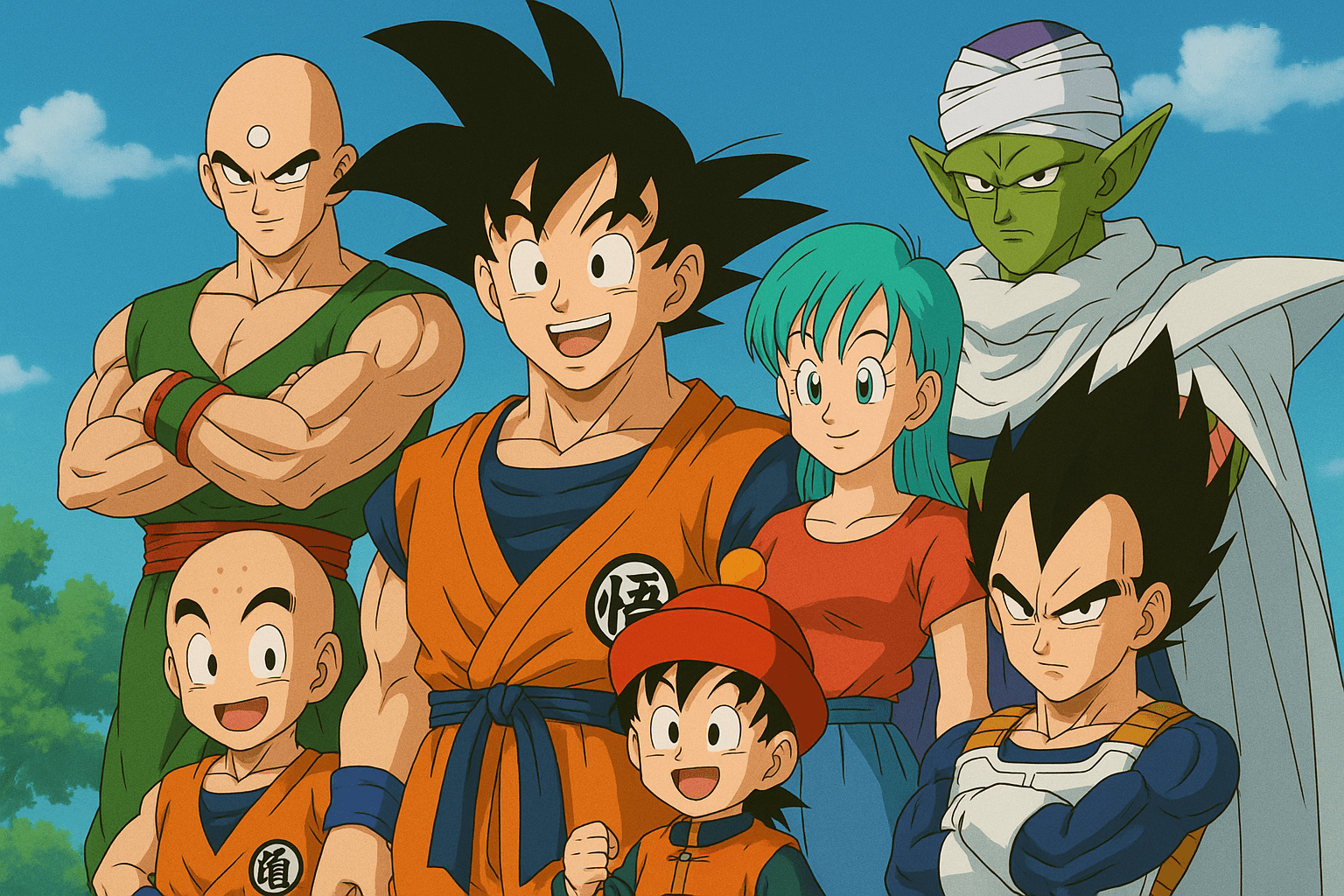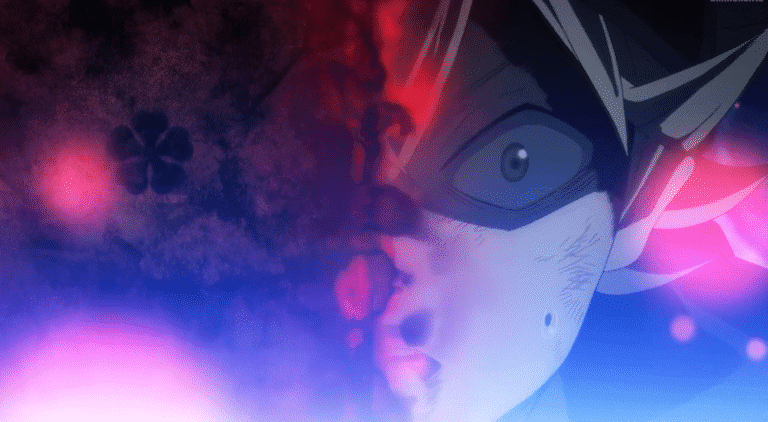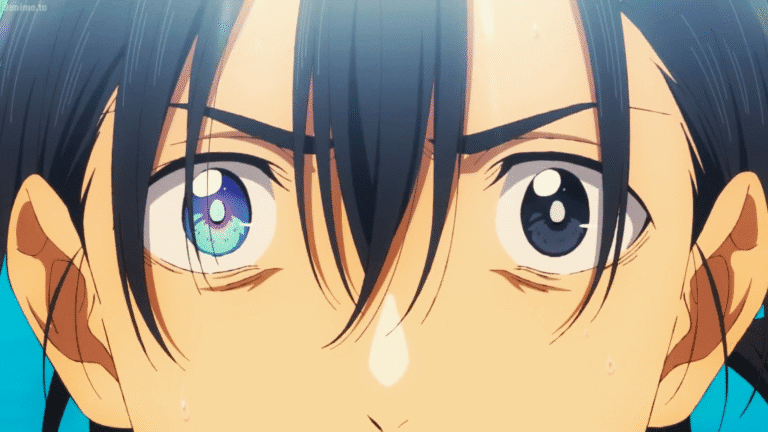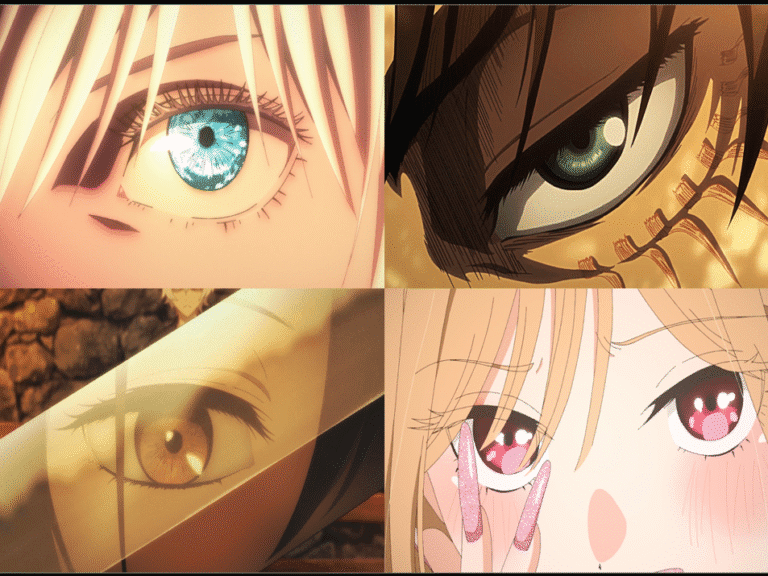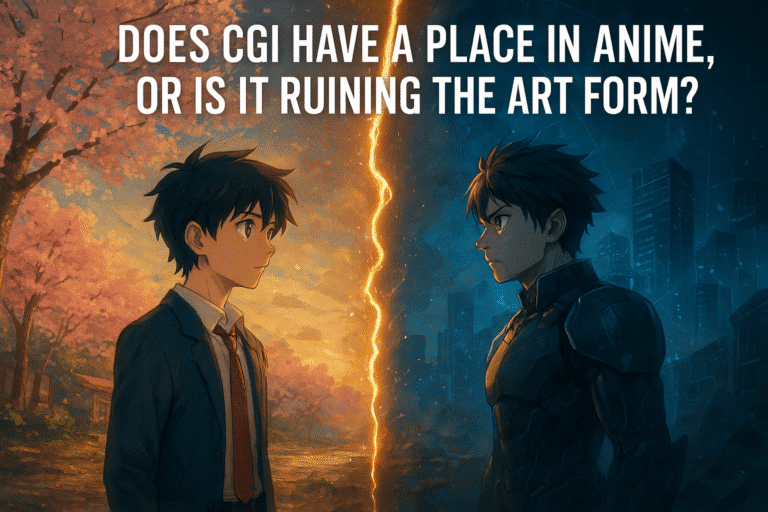Is the ‘Dragon Ball franchise’ outdated?
The Dragon Ball franchise (especially the original Dragon Ball, Dragon Ball Z, and even Super) has a legacy of being iconic for older audiences who grew up with it in the ’80s, ’90s, and early 2000s. However, for many younger viewers today, it can feel outdated, overly simple, or even boring. Let’s explore why this disconnect exists:
Why Older Audiences Love Dragon Ball:
- Nostalgia:
For many fans, Dragon Ball was their first exposure to anime. It shaped their love for action, transformation scenes, and epic battles. That emotional attachment runs deep. - Cultural Impact:
Dragon Ball Z in particular defined an era of shōnen anime. It inspired countless shows (e.g., Naruto, Bleach, One Piece), and older fans appreciate it for laying the foundation of modern anime storytelling. - Simple, Iconic Characters:
Goku’s purity, Vegeta’s pride, and Piccolo’s evolution resonate strongly. These characters are straightforward but emotionally memorable. - Classic “Power Fantasy” Structure:
Training -> Transformation -> Beating the Big Bad. This linear progression felt groundbreaking at the time and satisfied a lot of emotional payoff for fans.
Why Younger Audiences May Find It Boring or Uninteresting:
- Simplistic Storytelling Compared to Modern Standards:
Today’s anime often have more intricate plots (Attack on Titan, Jujutsu Kaisen, Demon Slayer, Chainsaw Man, etc.), nuanced character arcs, and moral ambiguity. Dragon Ball’s good-vs-evil narrative can feel shallow in comparison. - Slow Pacing and Repetitive Formulas:
Older arcs like Namek or Frieza’s saga took dozens of episodes for a single fight. Younger audiences are used to faster storytelling and tighter editing. For them, this pacing can feel agonizingly slow or drawn out. - Lack of Emotional Depth or Stakes:
Characters dying and being revived repeatedly (especially with the Dragon Balls) reduces narrative tension. Modern audiences prefer real stakes and consequences. - Dated Animation Style:
Despite its charm, older animation may not visually appeal to kids raised on ultra-polished shows like My Hero Academia or Demon Slayer with fluid sakuga and vibrant color palettes. - Character Simplicity:
Goku is a classic “pure-hearted hero,” but his lack of personal growth or inner conflict can feel flat. Today’s protagonists often wrestle with darker sides, complex motives, or trauma—something Goku mostly lacks. - Oversaturation of the Franchise:
The Dragon Ball franchise is huge, and for new fans, it can be overwhelming. Plus, the reuse of similar plot points (new villain > new transformation > Goku wins) can feel repetitive or unoriginal.
Why This Gap Happens:
- Generational Shift in Media Consumption:
Kids today are constantly exposure to fast-paced media, video games, and short-form content (TikTok, YouTube Shorts, etc.). Their attention spans and expectations have evolved. - Cultural Shifts in Storytelling:
Anime today often reflects current societal themes—mental health, trauma, systemic injustice, etc. Dragon Ball, being a product of a different era, is more about raw power, simplicity, and perseverance, which may seem “old-fashioned.” - Lack of Entry Point:
Without the nostalgia or cultural context, a 10-year-old watching Dragon Ball Z today might not get what made it so special when it first aired.
Can Dragon Ball Still Appeal to Younger Audiences?
Absolutely—but with adaptation:
- Dragon Ball Super: Super Hero leaned into newer animation styles and focused on characters like Gohan and Pan, which got a lot of younger fans engaged.
- The new Dragon Ball DAIMA series is expected to target the younger audiences with a cuter, more modern art style and shorter episodes—possibly a deliberate attempt to bridge the generational gap.
Final Thoughts:
Dragon Ball isn’t necessarily too simplistic—it’s just from a different era of storytelling. What was revolutionary in the ’80s and ’90s now feels foundational and predictable. For older fans, it’s beloved for its influence and emotional memories. For younger fans, it competes with a much larger, more sophisticated, and faster-paced anime landscape.
In a way, it’s like comparing Pac-Man to Fortnite. Both were revolutionary in their time—but one clearly feels more exciting to today’s audience.
💭 Do you think that the Dragon ball franchise is to outdated for the younger audience? If so, why? Share your thoughts on the comments below.

